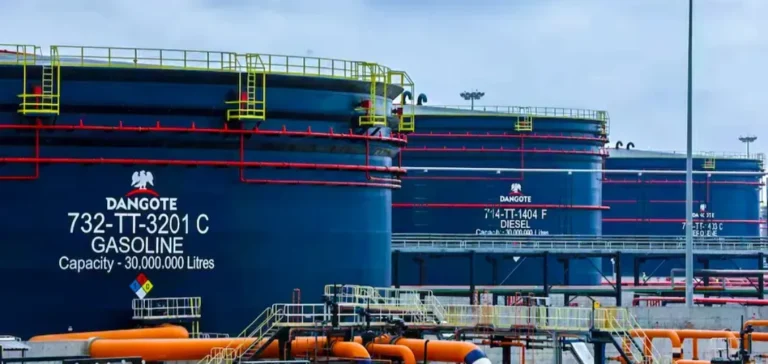The Dangote refinery, with a capacity of 650,000 barrels per day, shut down its gasoline unit following a technical failure on August 29. According to a client note from IIR Energy, the outage may last between two and three months due to major repairs and equipment replacements that were originally scheduled for December 2025.
The affected unit, the 204,000 barrels per day Residue Fluidized Catalytic Cracking Unit (RFCCU), was initially planned to restart around September 20. However, the necessary maintenance work may extend the downtime beyond this date. Dangote has not commented on the cause of the incident or the exact timeline for resumption.
Impact on exports and ramp-up phase
This disruption comes as the Nigerian refinery was entering a critical ramp-up phase. Two gasoline cargoes had recently been shipped to the United States East Coast, with arrival expected in New York by the end of the month. This development marked a key milestone for the facility, which has been closely monitored for its ability to produce fuel meeting North American standards.
The extended suspension of the gasoline unit could slow down the site’s ambitions, which had initiated its first commercial deliveries in the second quarter of the year. The project, presented as Africa’s largest refining complex, was built in the Lekki industrial zone near Lagos with an initial investment estimated at more than $19bn.
Maintenance schedule readjusted
The early implementation of maintenance work originally planned for year-end may help stabilise long-term output, though it requires a temporary disruption of the supply chain. The RFCCU, which plays a key role in converting heavy residues into gasoline, is essential for maximising yields of finished products destined for export.
The prolonged unavailability of this unit occurs in a regional context marked by strong demand for refined fuel and increasing reliance on imports. The full restoration could therefore influence short-term market balances, particularly along the West African corridor and transatlantic trade routes.






















